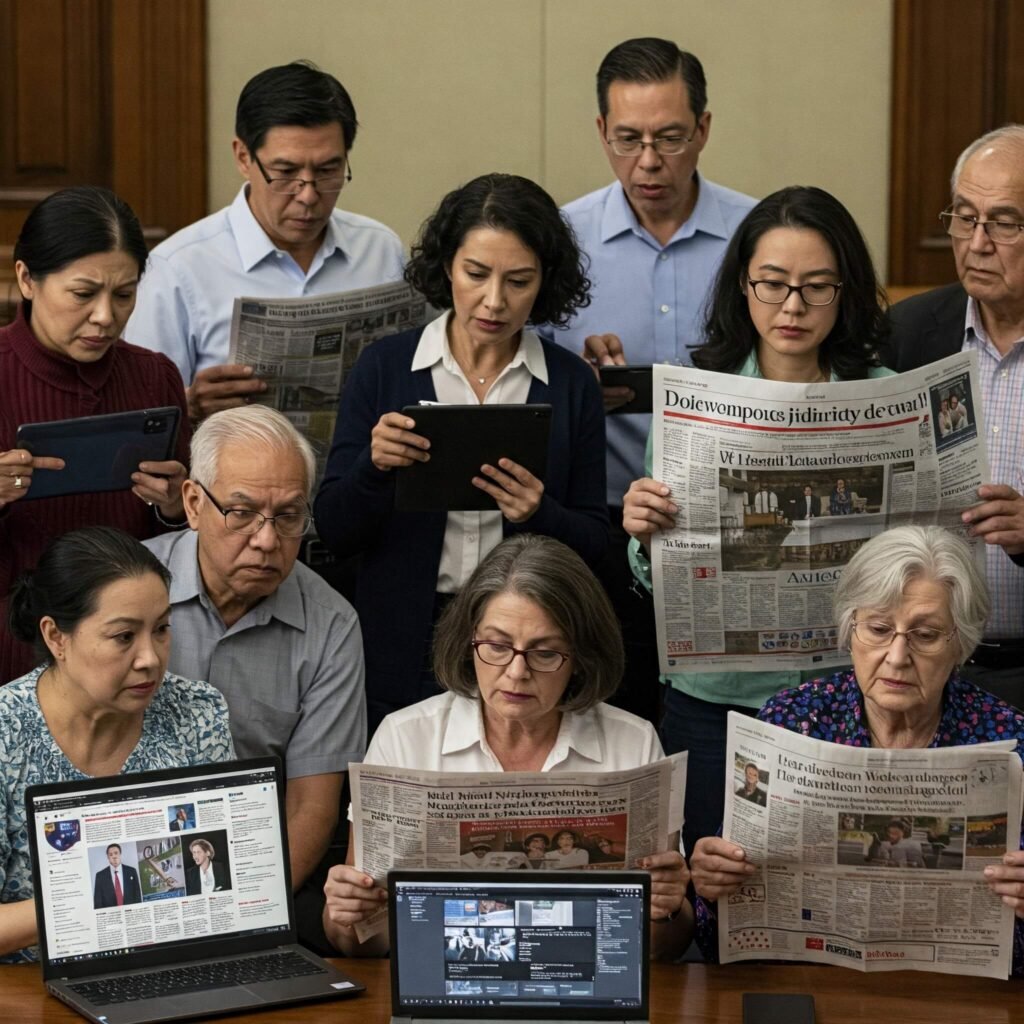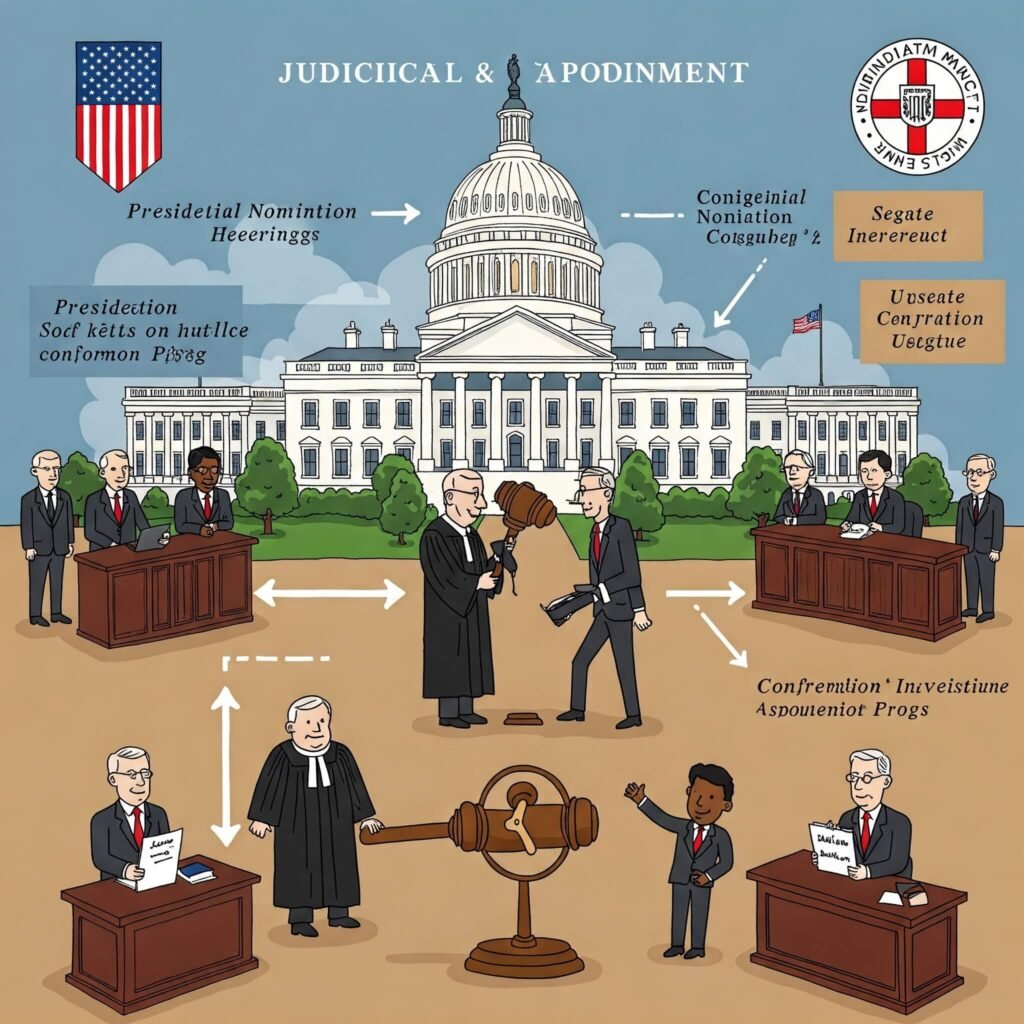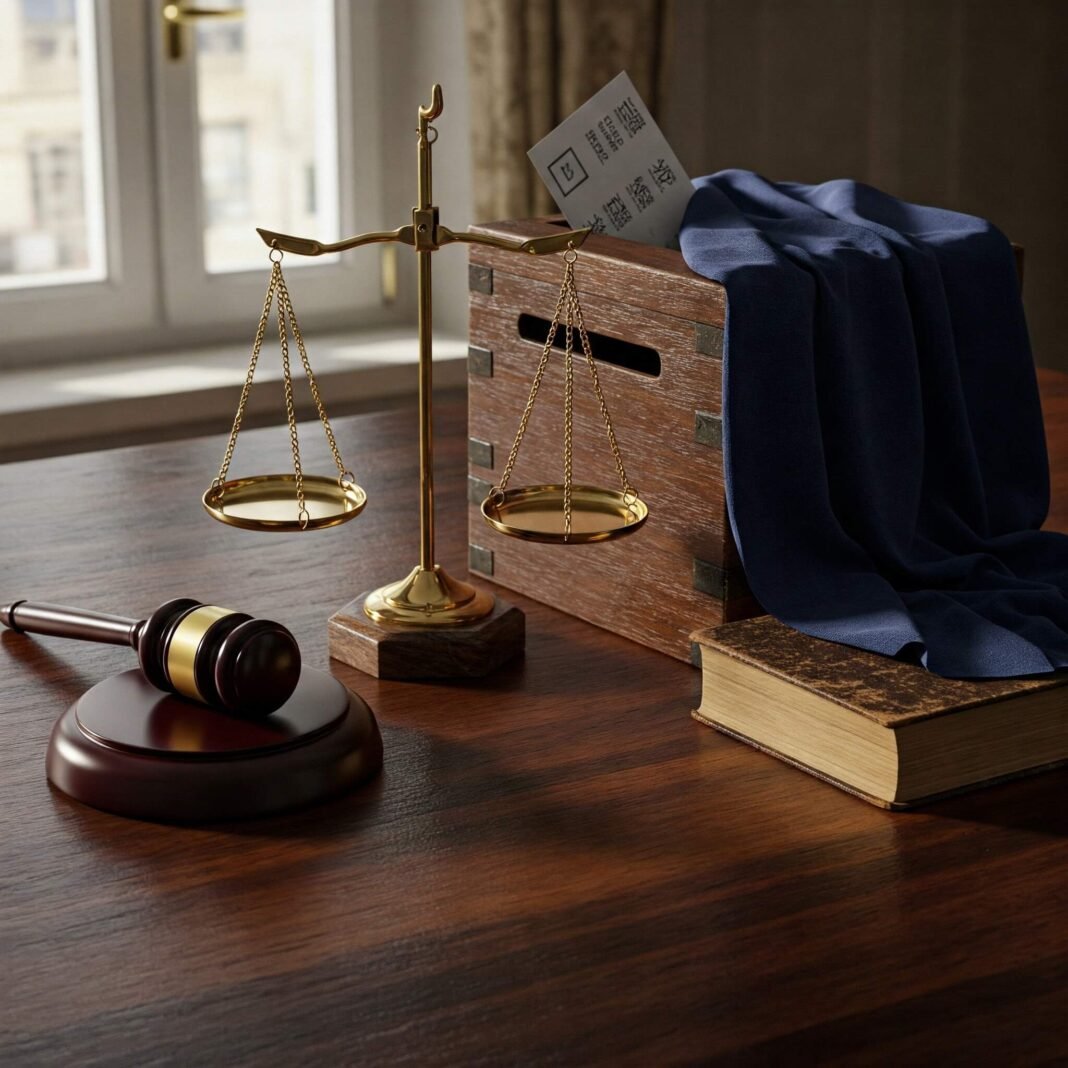Lady Justice, blindfolded with scales, represents the ideal: impartial justice. We envision a judiciary free from outside influence, especially political pressure. Yet, key figures in high courts reach their positions through a process linked to politics. Understanding the political ties of judges is crucial. It helps us grasp the legal system’s dynamics and its role in a democracy.
Let’s explore judicial appointments and affiliations. We’ll examine how judges form political ties. We’ll see how these ties might affect the courts’ perception and function. This topic is vital for public discussion. It’s a complex interaction involving constitutional design, political strategy, and the need for an independent judiciary. Let’s explore this debated subject together.
Understanding the Political Ties of Judges
Judges, unlike elected officials, are often appointed, particularly at higher court levels. Elected officials campaign and seek public votes. This difference introduces an inherent political dimension from the start. Political figures are responsible for nominating and confirming judges. They are deeply involved in the political landscape.
Consider federal judges in the United States. This includes Supreme Court justices. The President, a political figure, nominates candidates. The Senate, a legislative body of elected politicians, must confirm these nominations. This structure is part of the constitutional system. It involves checks and balances. Political considerations are inherent in this process.
The Appointment Process and Political Ties of Judges
Selecting judicial candidates is seldom politically neutral. Presidents often seek nominees. They look for individuals who align with their legal philosophy. They consider their approach to interpreting the Constitution. Senators evaluate nominees too. They scrutinize past rulings, writings, and statements. They look for clues about future rulings. This is often seen through a partisan or ideological perspective.
This process means individuals considered for judicial roles often have résumés showing experience in political circles. They might have served in executive branch roles. Some worked for political campaigns. Others advised politicians. Some belonged to legal groups linked to specific political viewpoints. These experiences are valuable. However, they undeniably create political ties of judges before they put on the robe.
Public hearings occur. Interest groups lobby. Media coverage, often polarized, surrounds high-profile judicial nominations. All these aspects highlight the intensely political environment. Key court figures are chosen within this environment. Legal skill is weighed. Perceived ideological alignment and past connections are also considered.

How Political Ties of Judges Manifest in Practice
Judges take oaths to uphold the law impartially. It’s important to distinguish having prior political experience from being overtly partisan on the bench. However, a judge’s background can influence their judicial philosophy. This includes their political ties of judges. It can shape their approach to interpreting laws. It can affect how they view precedents.
These ties involve more than just party membership. They can come from various areas:
- Previous Government Roles: A judge might have served in the Department of Justice. They could have worked in a Governor’s office or as legislative counsel.
- Associations with Ideological Groups: Membership in legal societies is a factor. Some societies are known for specific judicial philosophies. These include originalism, textualism, or living constitution approaches.
- Prior Political Activity: Campaign work or political donations (made before becoming a judge) can be relevant. Holding elected office is another example.
- Professional Networks: Connections formed in politically charged legal fields matter. Examples include civil rights law, environmental law, or corporate law.
Examining How Political Ties of Judges Influence Perspectives
Judges aim for impartiality. Yet, their life experiences shape how they understand the world. Their past political ties of judges are part of this. These experiences influence their view of legal issues before the court. This influence is often seen in their interpretation methods. It appears in their views on governmental power or individual rights. It’s also seen in their perspective on the courts’ role.
Consider a judge with a strong background in environmental advocacy. They might approach regulatory cases differently. Compare them to a judge whose background is in corporate law. Similarly, a former prosecutor might view criminal procedure differently. A former public defender would have another perspective. When these backgrounds align with broader political ideologies, people perceive political ties of judges influencing decisions more strongly.
High-profile cases often highlight these dynamics. Judges rule based on law and fact. However, their reasoning can reveal underlying philosophies. Dissenting opinions show this. The questions they ask during arguments provide clues. These philosophies often link to political viewpoints. This doesn’t mean judges rule politically. It means their legal interpretation uses a framework. Past experiences and affiliations potentially shaped this framework.

The Impact of Political Ties of Judges on Judicial Independence
Judicial independence is fundamental to democratic rule. It ensures judges can decide cases based on law and facts. They should not fear political actors or public opinion. However, the presence and perception of political ties of judges challenge this principle.
Perceived bias is a significant challenge. What if the public or those involved in cases believe a judge’s past political affiliations swayed a decision? If they think this, rather than the case’s merits, determined the outcome, it can damage confidence in the judiciary. Losing this trust weakens the institution. It hurts its authority. It impairs its ability to function as a co-equal government branch.
The appointment process itself poses another challenge. Judicial nominations can become highly contentious partisan battles. This can politicize the court before new members even join. People might then see judges as political operators in robes. They might not view them as impartial arbiters of law.
Public Trust and the Perception of Political Ties of Judges
Public perception is vital for the judiciary’s legitimacy. Surveys track public confidence in government bodies. The judiciary’s standing can change. Controversial rulings happen. Appointment processes can be very divisive. When these events occur, discussions about the political ties of judges arise. This affects how the public views the courts’ fairness and impartiality.
Media coverage heavily influences this perception. The press frames stories about judicial appointments, rulings, and judges’ backgrounds. This framing can either support the idea of independent judges. Or, it can highlight potential political leanings. This affects public opinion.
Interest groups and advocacy organizations also join the conversation. Many focus on judicial nominations. They support or oppose candidates. Their stance depends on perceived ideology and past affiliations. This further emphasizes the political aspects surrounding the judiciary.

Mechanisms to Address Political Ties of Judges and Ensure Impartiality
The appointment process has an inherent political nature. Despite this, systems and norms exist to protect judicial impartiality. These aim to ensure independence. They address concerns about the political ties of judges.
- Lifetime Tenure: Federal judges in the U.S. have lifetime appointments. Many states offer long terms. This system insulates judges from political pressure once they serve. They theoretically don’t need to worry about pleasing politicians or the public for re-election or re-appointment.
- Codes of Conduct and Ethics Rules: Judges must follow strict ethical guidelines. These rules demand impartiality. They prohibit activities that could suggest bias.
- Recusal Rules: Judges must step aside from cases. This happens when their personal interests could create a conflict. This includes certain past affiliations or relationships. These could be seen as political ties of judges. They must recuse if bias might appear.
- Reliance on Precedent (Stare Decisis): This principle means following established legal rulings. It provides a framework. It limits how much a judge’s personal or political views can determine outcomes.
- Checks and Balances: Other government branches check the judiciary. Legislatures pass new laws. Executives propose constitutional amendments. These actions can counter judicial decisions. They provide a form of accountability.
Recommendations for Navigating Political Ties of Judges
Maintaining public trust and judicial integrity is an ongoing effort. Discussions continue on how best to handle the presence of political ties of judges. People also discuss ways to boost impartiality. Here are some commonly considered areas:
- Appointment Process Reform: Some suggest creating non-partisan or bipartisan nominating commissions. Others propose changing the power balance between the executive and legislative branches during selection. The aim is often to prioritize professional qualifications over perceived political alignment.
- Enhanced Transparency: Making the selection and confirmation process more open can help. This includes clear evaluation criteria and public hearings. It can make the process less mysterious. This might reduce suspicion regarding the role of political ties of judges.
- Strengthening Ethics and Recusal Standards: Periodically reviewing and improving judicial conduct codes and recusal rules is suggested. This could offer clearer guidance. It could also increase accountability. This applies to situations where a judge’s past affiliations might cause a conflict.
- Promoting Diverse Backgrounds: Appointing judges from varied professional fields is important. This goes beyond just prosecutors or corporate lawyers. Bringing in people with different life experiences adds various perspectives to the bench. This can broaden the court’s understanding of societal issues. It might lessen the dominance of views linked to specific political pathways.
- Civic Education: Educating the public is key. Teach people about the judiciary’s role. Explain the limits judges face. Help them see the difference between legal interpretation and political partisanship. This can build better understanding. It might help temper cynicism about the political ties of judges.
These are complex issues with no simple solutions. However, ongoing discussion is vital. It helps maintain confidence in the rule of law.




